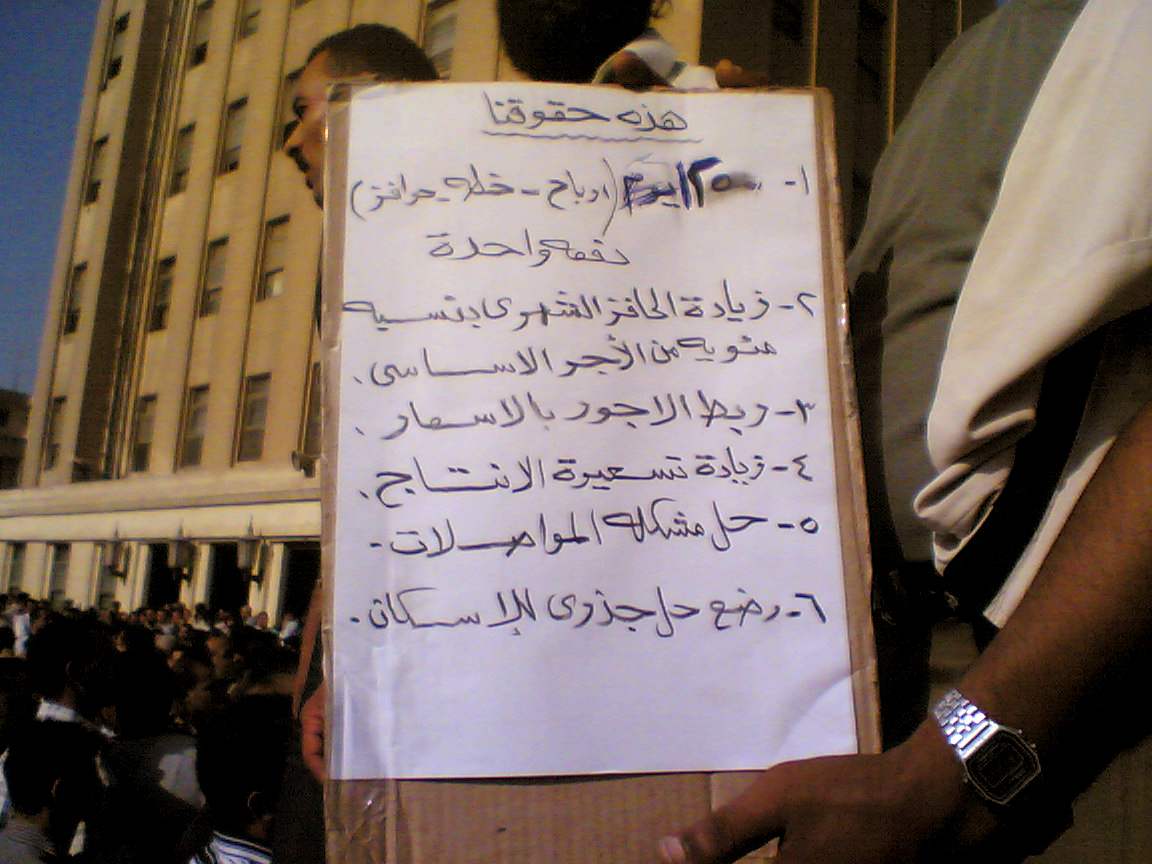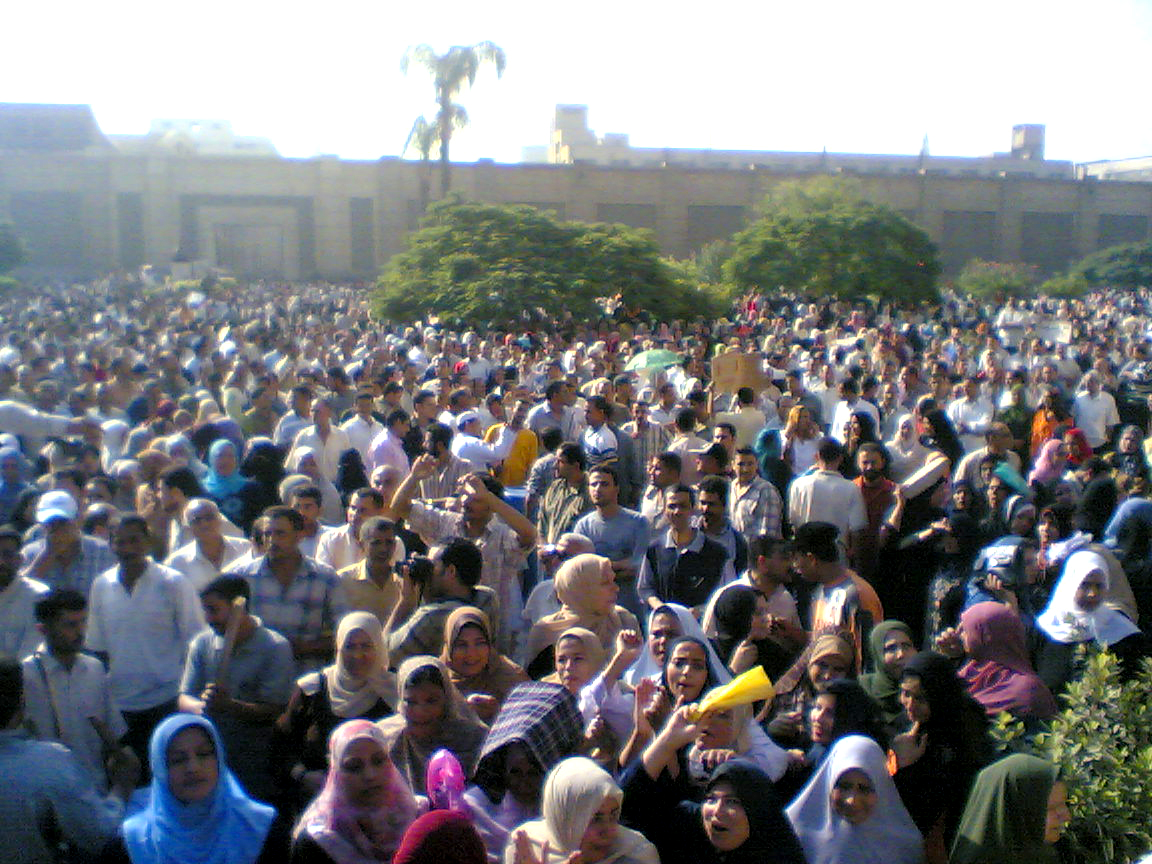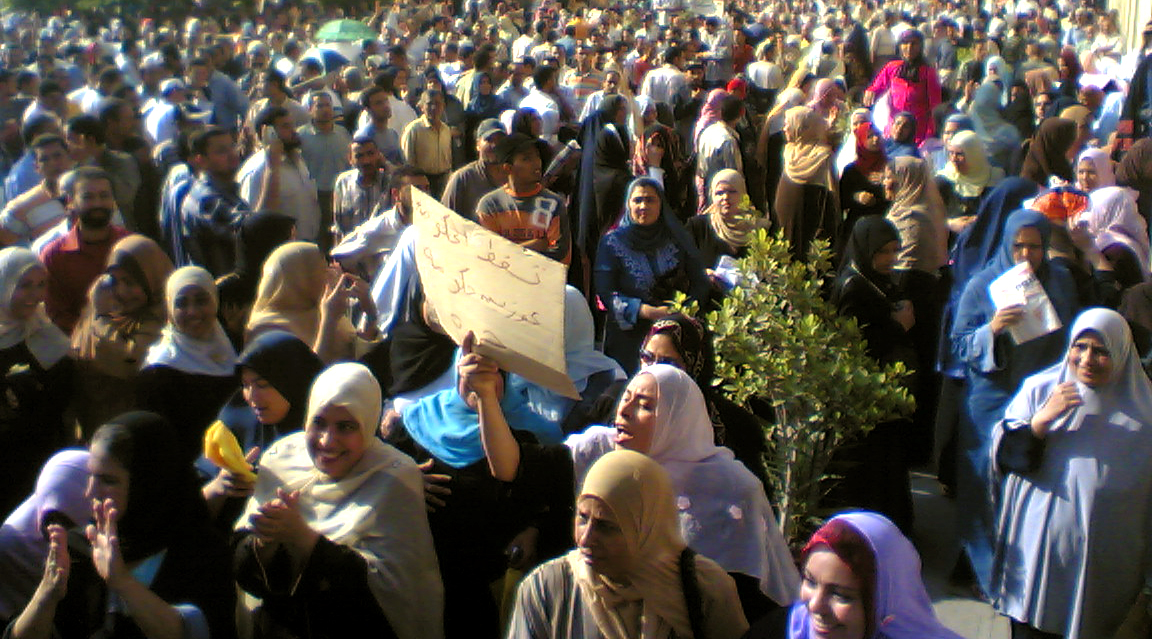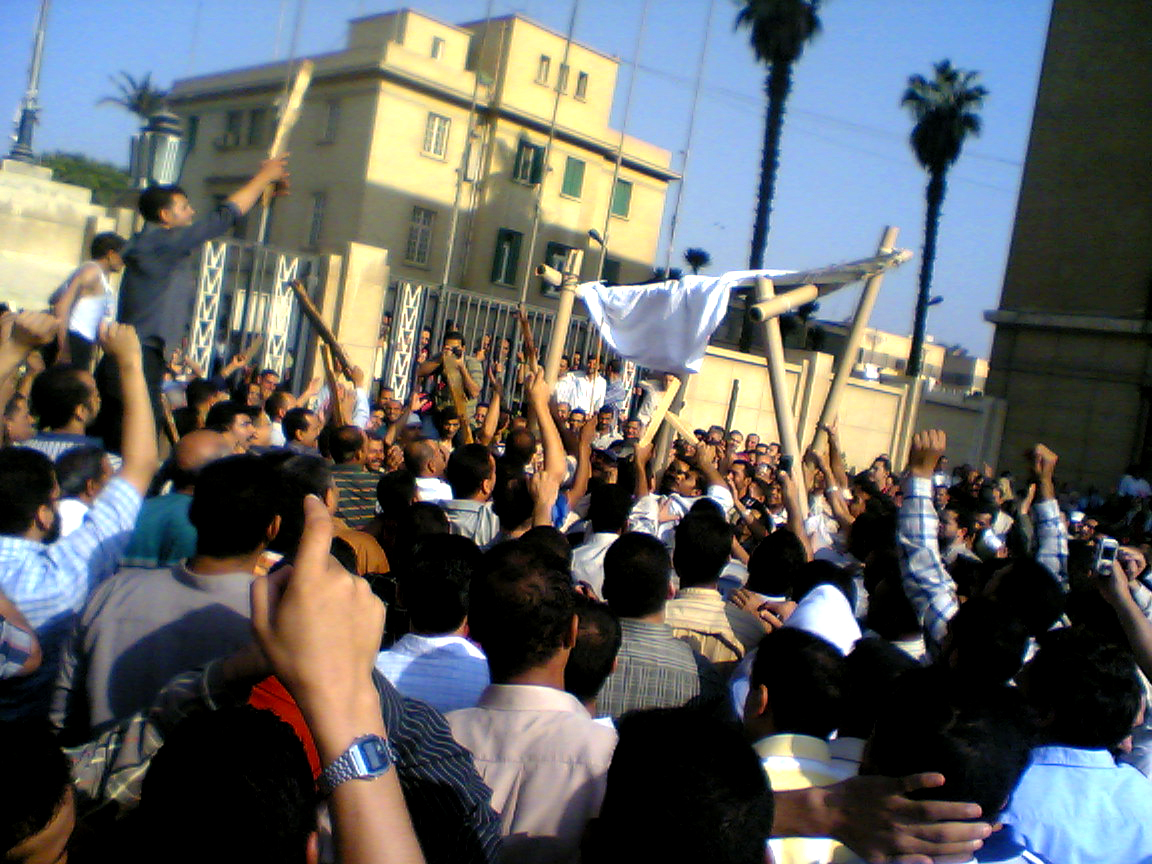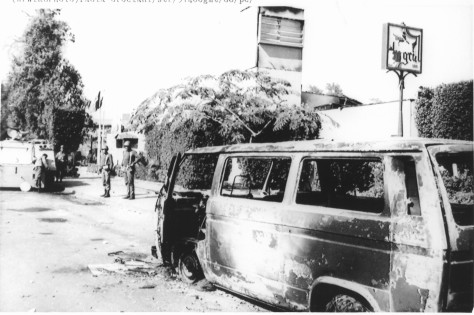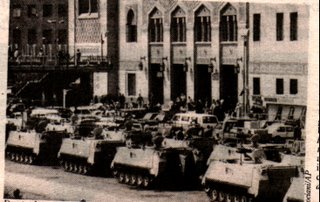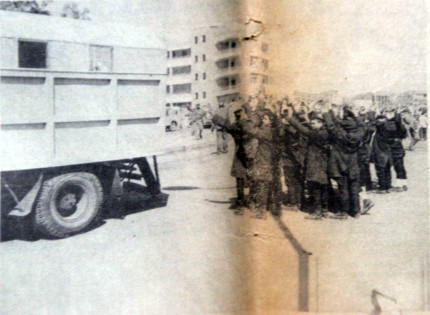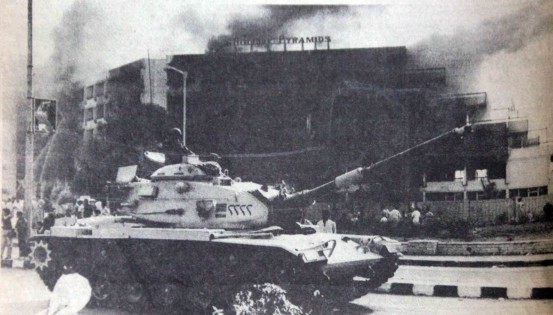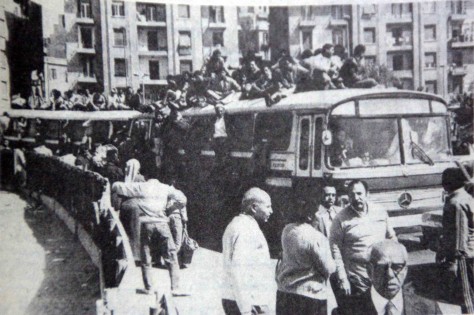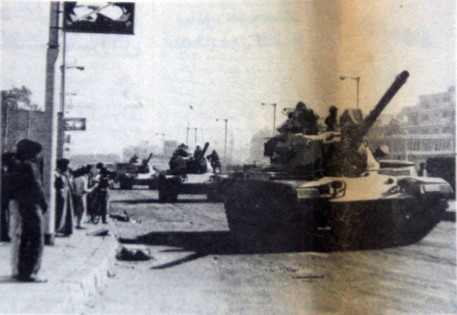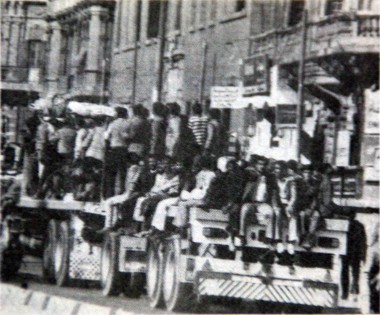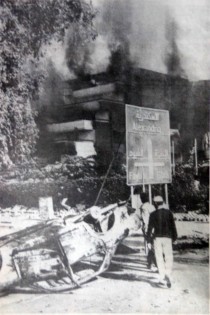The extent of fear felt by the Mubarak’s regime vis a vis the Mahalla strikers was astounding. Al-Masry Al-Youm is reporting that on Thursday, following the failure of negotiations with the NDP delegation, the Interior Ministry mobilized its Central Security Forces troops from FIVE PROVINCES neighboring Mahalla, and deployed them in the town.
Tag: csf
PHOTOS & VIDEOS: Ghazl el-Mahalla on Strike
I called Kareem el-Beheiri in Mahalla. He says the strikers’ numbers have exceeded 20,000. The Central Security Forces siege that started last night has now been withdrawn. Instead the factory is surrounded by State Security Police agents. CSF are expected to show up pretty soon though.
Kareem managed to take photos of the early hours of the strike. And as one notice, just like the case of the December 2006 strike, there’s strong presence of women workers from the garments sections.
Here are the workers’ demands put on piece of paper:
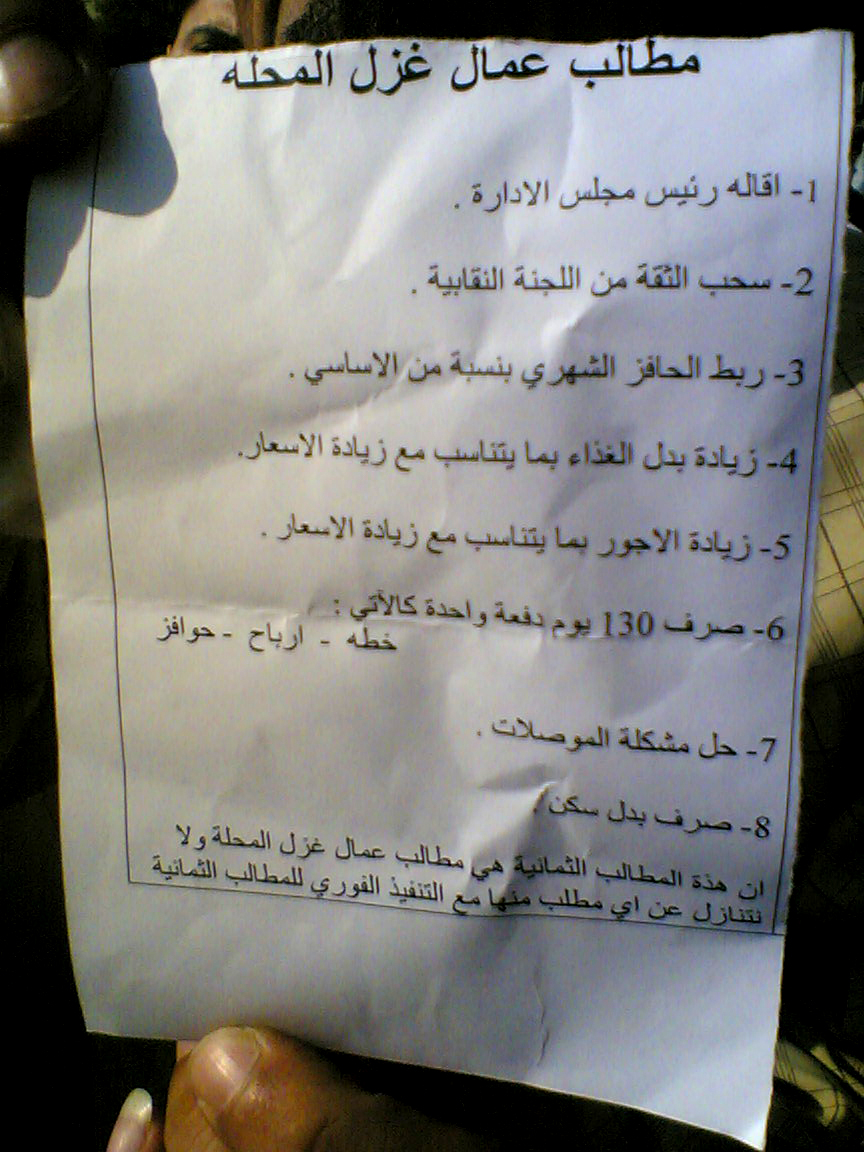
1- Impeaching the company board chairman
2- Impeaching the Factory Union Committee officials
3- Linking the monthly incentives to a fixed percentage of the monthly basic salary
4- Increasing the food allowance to match in the increase in prices
5- Raising the salaries to match the increase in prices
6- Paying the workers 130-day as part of their annual share of profits
7- Solving the transportation crisis
8- Paying the workers housing allowances
And fantastic pic of a worker who’s carrying a banner that reads: “We will not be silent. We are not afraid.. We can’t even find the bread.”
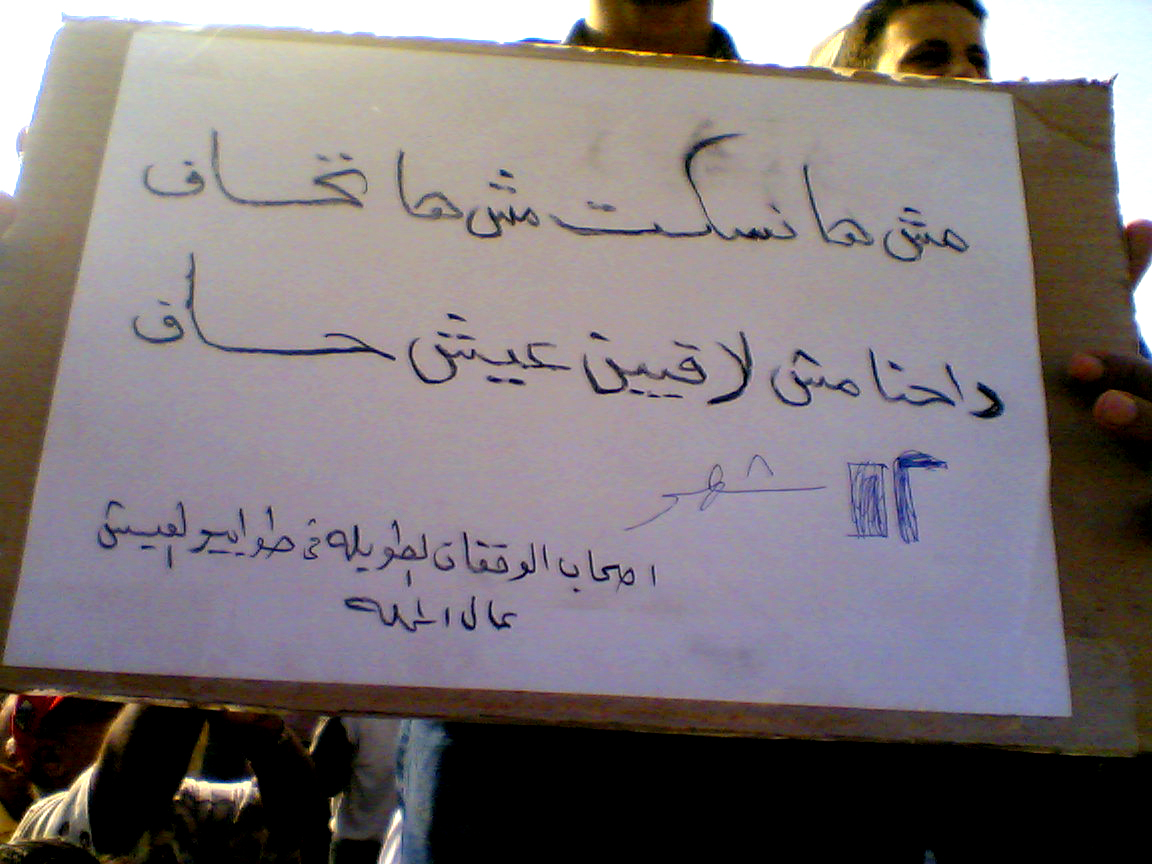
And here are videos:
More reports from other labor activists inside the company should be coming soon.
My heart and thoughts go out to the Mahalla strikers.
On the 1986 CSF Intifada
I met yesterday retired Police Brigadier-General Mahmoud Qutri, for coffee and chat. Qutri is probably the most vocal among the very few retired senior security officials who are more than happy to expose the corruption inside the Interior Ministry and the systematic torture of citizens in custody.
One of the things I asked Qutri about was the 1986 intifada of the Central Security Forces’ conscripts. I wanted to know his opinion in particular regarding a widely popular conspiracy theory that it was drug dealers in collaboration with elements within the security establishment who were behind instigating the conscripts’ mutiny, as a way to get rid of General Ahmad Rushdi, then the interior minister credited with limited security reforms when he was in office.
Qutri strongly denied these allegations, and also rejected the theory that Islamist militant groups were behind the events, affirming it was a spontaneous uprising by the conscripts, caused by the ill-treatment on the hands of their officers.
“I call them the ‘Interior (Ministry) slaves,'” said Qutri of the CSF conscripts. “They receive the worst treatment among the conscripts. It was even worse before 1986. They used to get paid LE3 a month then. It was common for the soldiers to get beaten up by their officers brutally. In one case I learned of for example, an officer punished one of his conscripts, by stripping him of all of his clothes except for the underwear, covered his full body in molasses, and left him to burn under the sun for a day.
“Rumors spread that the three-year conscription service was to be extended by an additional year… The soldiers exploded. They attacked, killed their officers in the camps. It wasn’t all over the republic. It was mainly in Cairo and Giza. The army had to be called in.”
More interestingly, Qutri said “The army conscripts obeyed the orders and shot at the CSF conscripts. But they also shot several police officers deliberately. In my view there were two reasons: One is army troops hate the police as a whole, and vice versa. Secondly, police officers in specific are hated by the public. Those army conscripts were after all part of the people, and had some brother or cousin mistreated in a police station, so they decided to take revenge while quelling the riots.”
